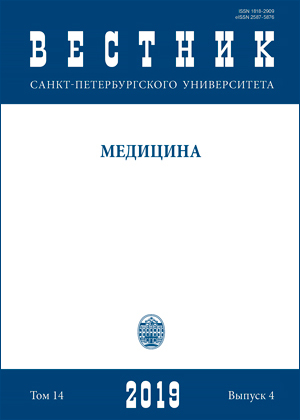Apoptosis and autophagy, as inherent components of autoimmunity in the acute period of ischemic stroke
DOI:
https://doi.org/10.21638/spbu11.2019.409Abstract
Acute ischemic stroke is accompanied by aseptic inflammation, which alters the brain tissue and exposes the co-stimulatory molecules of the immune system and the neuronal antigens. It is known that apoptosis, autophagy, and necrosis are the main mechanisms of neuronal death after acute ischemic stroke. Modulation of apoptosis and autophagy in the acute period of the disease, as components of increased immunological reactivity, can contribute to the survival of neurons, preventing their delayed death. A comparative assessment of the dynamics of apoptosis and autophagy markers was performed for better understanding of the crossinteractions between these processes. The results indicate that several markers of apoptosis and autophagy are involved at various stages of the acute period of ischemic stroke and that
enhanced spontaneous apoptosis of peripheral blood mononuclear cells acts as one of immunosuppression factors in acute period of the disease. The obtained data confirm the active participation of autophagy, pro- and antiapoptotic processes in the autoimmune response and the formation of delayed neuronal death after acute ischemic stroke.
Keywords:
autoimmunity, inflammation, apoptosis, autophagy, acute ischemic stroke, serum level of protein p53, Bcl-2, Beclin 1, LC3
Downloads
References
References
Downloads
Published
How to Cite
Issue
Section
License
Articles of "Vestnik of Saint Petersburg University. Medicine" are open access distributed under the terms of the License Agreement with Saint Petersburg State University, which permits to the authors unrestricted distribution and self-archiving free of charge.




